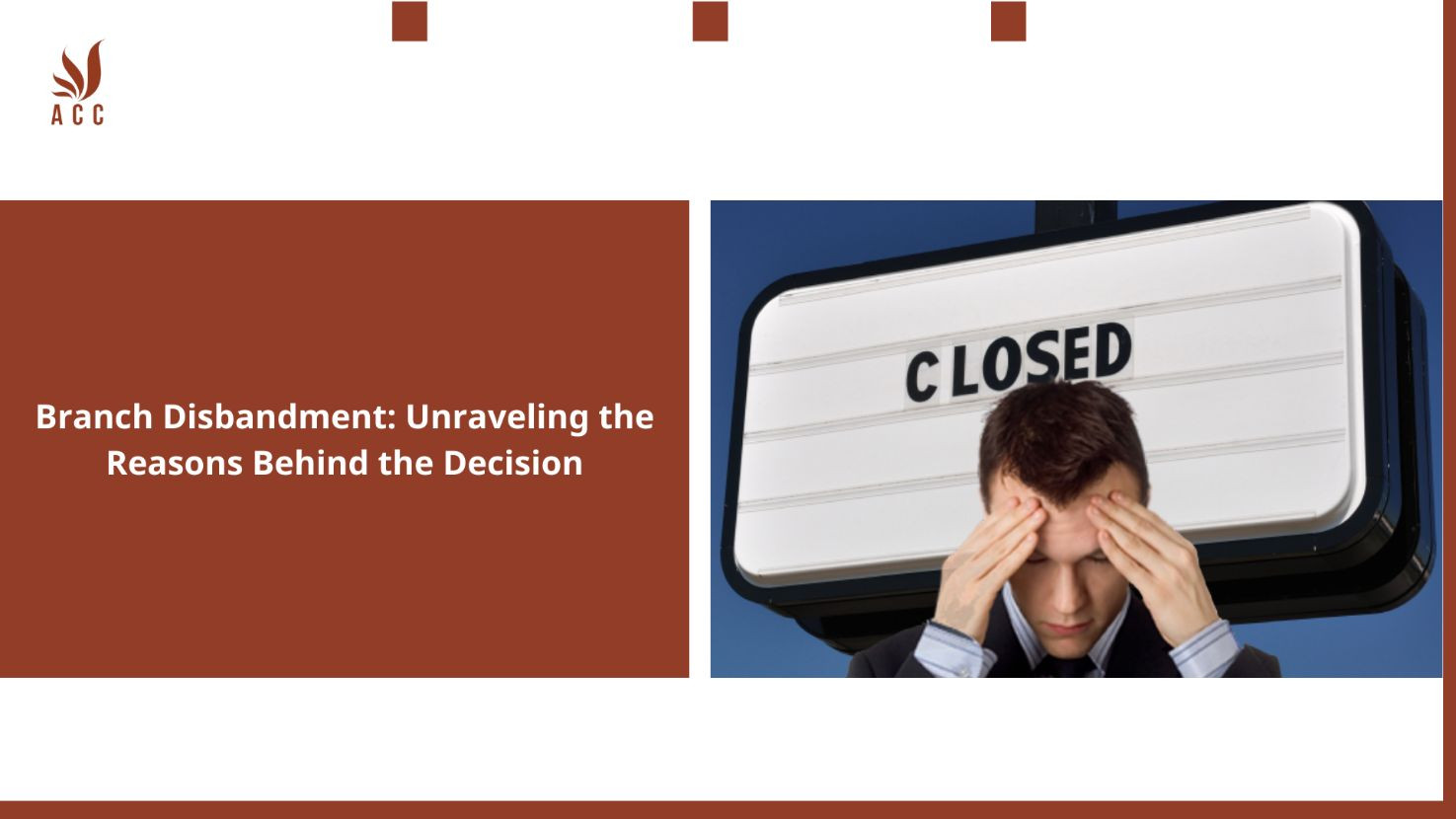In this article, we will delve into the intricate process of disbanding a branch within a company. Decisions like these are never taken lightly and involve a meticulous evaluation of various factors. Join us as we explore the reasons behind the disbandment of a branch and the thought process that leads to such a strategic move. So, what doess dissolving a limited company mean? ACC Group will address your question.

I. What is the reason for disbanding the branch?
The decision to disband a branch is influenced by various reasons, and organizations may consider this course of action for a range of factors related to strategic, financial, operational, or other considerations.
II. Understanding the Disbandment: Decoding the Decision-Making Process
1. Market Conditions: Navigating Change
a. Adapting to Shifts
The article begins by addressing the dynamic nature of market conditions and how they play a pivotal role in influencing a branch's performance.
b. Challenges Faced
Exploring specific challenges resulting from changes in customer preferences, increased competition, or shifts in industry dynamics, which impact the branch's ability to meet objectives or maintain profitability.
2. Financial Performance: The Numbers Game
a. Assessing Performance Metrics
A detailed examination of the branch's financial performance, highlighting key metrics such as revenue, profitability, and return on investment.
b. Misalignment with Goals
Explaining how the branch's financial performance falls below expectations or deviates from the company's overall financial goals.
3. Strategic Alignment: Realignment for Success
a. Evaluation of Strategic Direction
Assessing how the branch aligns with the company's overarching strategic direction and objectives.
b. Refocusing Efforts
Explaining the necessity of disbanding the branch to reallocate resources and focus on areas more aligned with the company's strategic priorities.
4. Operational Efficiency: Streamlining Processes
a. Identifying Inefficiencies
An analysis of the branch's operational efficiency, highlighting inefficiencies, redundancies, and areas where processes or resources can be optimized.
b. Enhancing Efficiency Through Disbandment
Explaining how disbanding the branch contributes to improved operational efficiency, cost savings, and better resource allocation.
5. Growth Opportunities: Paving the Way Forward
a. Exploring Potential Growth Avenues
Evaluating potential growth opportunities for the company and how disbanding the branch facilitates the redirection of resources towards more promising areas.
b. Seizing Opportunities
Explaining how redirecting efforts and resources from the branch can lead to greater growth and success in other areas.
III. Conclusion: A Strategic Move for Future Success
Summarizing the multifaceted reasons behind the proposed disbandment of the branch and emphasizing its strategic importance for the company's future success.
Frequently Asked Questions:
1. Q: Is disbanding a branch a common practice in the business world?
A: While not extremely common, companies may disband branches strategically to reallocate resources and adapt to changing market conditions.
2. Q: How will the disbandment impact employees of the branch?
A: Employee impacts will be considered, with potential measures in place to minimize disruptions, such as reassignments or support in finding alternative positions.
3. Q: Can the branch be revitalized instead of disbanding it?
A: The decision to disband follows a thorough evaluation, considering revitalization options. However, if deemed impractical, disbandment becomes a viable strategic choice.
4. Q: How will stakeholders be involved in the decision-making process?
A: The proposal is subject to approval by the Board of Directors/Management Team, ensuring that key stakeholders are actively involved in the decision.
Nội dung bài viết:






Bình luận